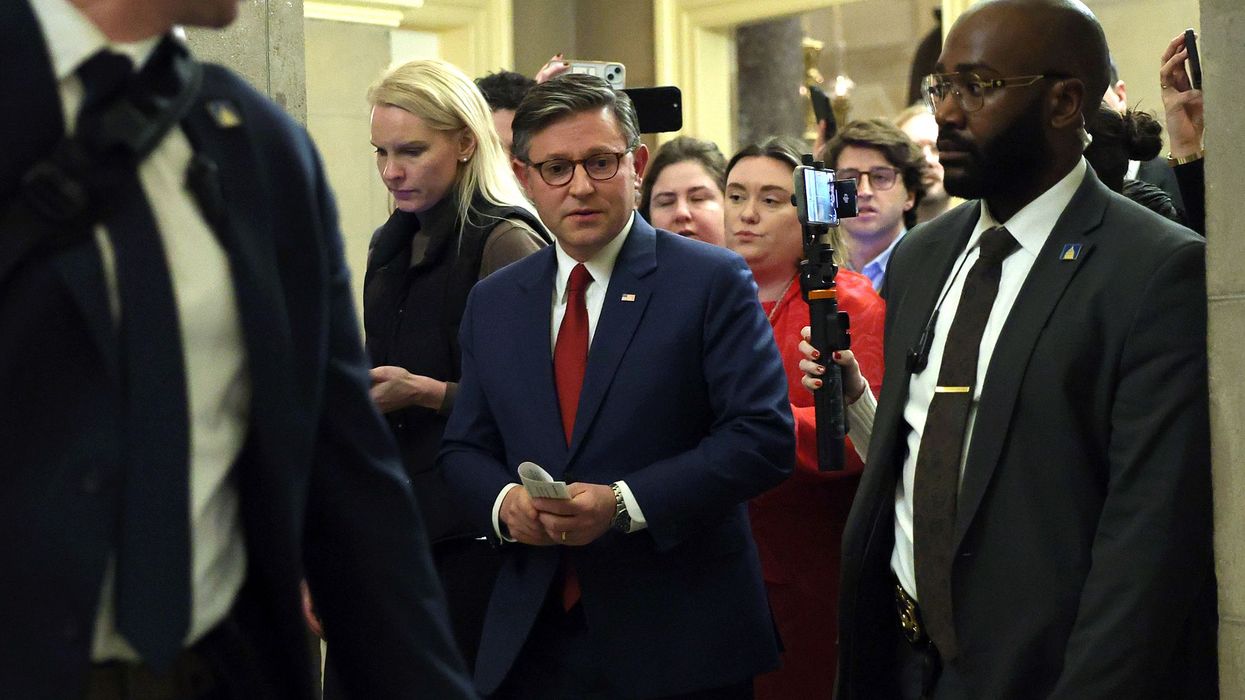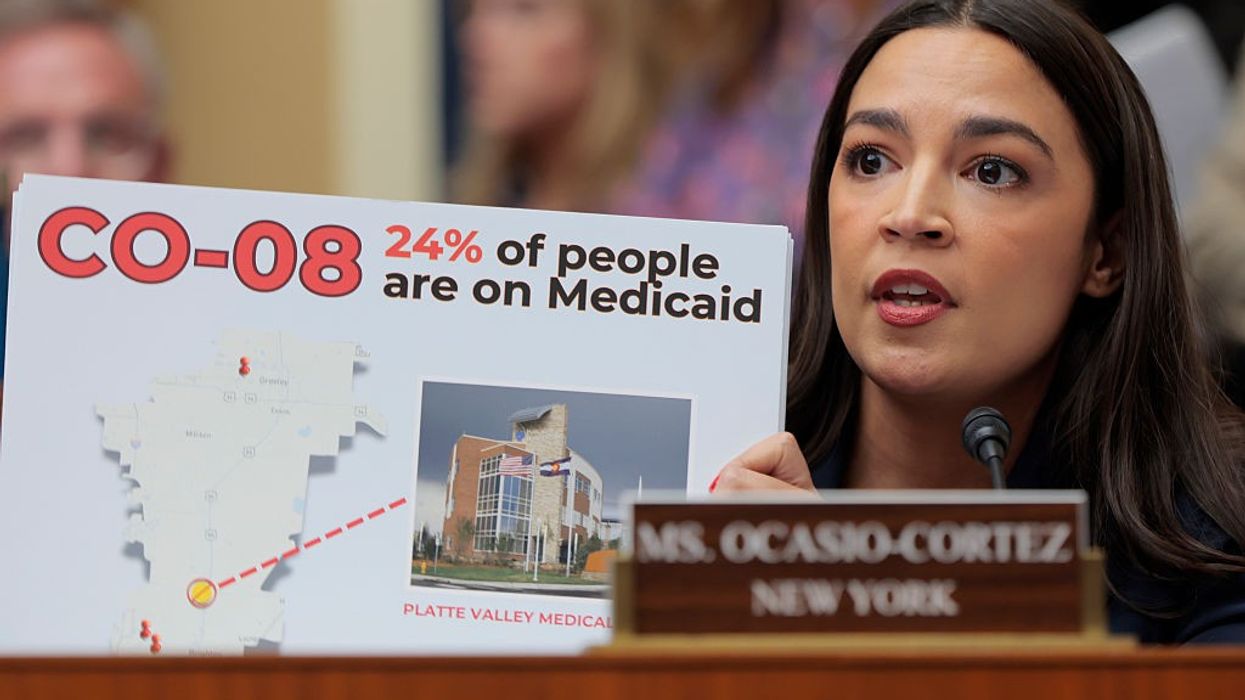October, 23 2008, 04:48pm EDT

For Immediate Release
Contact:
Rachel Myers, (212) 549-2689 or 2666; media@aclu.org
James Freedland, (212) 519-7829
Former US AG, Senior Justice Officials and Top Military Officers Urge Supreme Court to Review Indefinite Detention Case
Respected Leaders Join ACLU Case Challenging Sweeping Presidential Authority That Deprives US Residents of Basic Constitutional Rights
WASHINGTON
Former
United States Attorney General Janet Reno, Former FBI Director William
Sessions, Major General Antonio M. Taguba and other former government
and military officials today are joining the American Civil Liberties
Union in urging the U.S. Supreme Court to review the president's
authority to indefinitely imprison a legal resident of the U.S. without
charge or trial. Several former top government and military leaders are
signing on to friend-of-the-court briefs in the ACLU case of Ali Saleh
Kahlah al-Marri, who has been detained in solitary confinement at a
Navy brig in South Carolina since June 2003.
"This unprecedented expansion of
executive authority within the borders of the United States is not only
at odds with more than 200 years of history, but it is wholly
unnecessary," argue several former federal judges and former senior
Justice Department officials in their brief. "The federal government is
eminently capable of both protecting our nation's security and
safeguarding our proud tradition of civil liberties."
Retired military officials also express concern about the heightened role of the military in detaining Americans on U.S. soil.
"The unlawful military detention of
civilians undermines the necessary combination of trust and distance
between military personnel and civilians," say several retired U.S.
generals and admirals in their brief. "The quality and character of the
United States military would be undermined by a more extensive
involvement in domestic law enforcement."
Al-Marri was first arrested in
December 2001 at his home in Peoria, Illinois, where he was living with
his wife and children. His case was scheduled to go to trial in July
2003, but was halted on the eve of trial when President Bush took the
extraordinary step of designating al-Marri an "enemy combatant" and
transferring him to a military brig in South Carolina. At the brig,
al-Marri was detained incommunicado for 16 months and subjected to
torture and other abuse. The government continues to hold al-Marri
indefinitely as an "enemy combatant" based upon uncorroborated
allegations that he has ties to al-Qaeda, although no evidence has been
presented to sustain these allegations. He is the only remaining person
detained as an "enemy combatant" in the United States.
In 2007, a three-judge panel of the
U.S. Court of Appeals for the Fourth Circuit ruled that the government
cannot hold individuals arrested in this country in military detention
without charge. However, in July 2008, the full appeals court
overturned that ruling in a narrowly divided decision.
"The ACLU is asking the Court to
reverse the lower court decision that gave the president sweeping power
to deprive individuals in the United States of their most basic
constitutional rights," said Jonathan Hafetz, staff attorney with the
ACLU National Security Project and lead attorney for al-Marri. "In
America, no one - not even the president - is above the law and the
government cannot simply lock people up forever without charge."
Five friend-of-the-court briefs in
support of the ACLU are being filed today by former U.S. attorney Janet
Reno, former FBI director William Sessions and other former federal
judges and top Justice Department officials; retired military officers
Major General Antonio M. Taguba, Brigadier General David M. Brahms,
Rear Admiral Donald J. Guter and Rear Admiral John D. Hutson; The
Constitution Project and Rutherford Institute; several professors of
legislation; and several professors of federal courts and
constitutional law.
The briefs and more information about the case will be available later today at: www.aclu.org/almarri
The ACLU's certiorari petition for Supreme Court review is available online at: www.aclu.org/safefree/detention/36861lgl20080919.html
Attorneys on the case are Hafetz,
Steven R. Shapiro and Jameel Jaffer of the ACLU; Aziz Huq and Emily
Berman of the Brennan Center for Justice at NYU School of Law; Andrew
J. Savage, III of the law firm Savage & Savage, P.A.; John J.
Gibbons and Lawrence S. Lustberg of the law firm Gibbons, P.C.; and
Sidney S. Rosdeitcher of the law firm Paul, Weiss, Rifkind, Wharton
& Garrison, LLP.
The American Civil Liberties Union was founded in 1920 and is our nation's guardian of liberty. The ACLU works in the courts, legislatures and communities to defend and preserve the individual rights and liberties guaranteed to all people in this country by the Constitution and laws of the United States.
(212) 549-2666LATEST NEWS
House GOP to Skip Town Early for Holiday Recess as Healthcare Premiums Soar, Epstein Files Loom
"The same GOP that voted last summer to give the richest Americans and most profitable companies trillions of dollars in tax cuts somehow can't find the funds this winter to ensure 20 million Americans can afford their health insurance."
Dec 18, 2025
The US House was originally scheduled to be in session on Friday, but the Republican leadership gave members a green light to skip town on Thursday for the two-week holiday recess without voting to prevent massive health insurance premium hikes for tens of millions of Americans.
The decision to let members leave early came after House Democrats secured enough support from swing-district Republicans to force a vote on legislation that would extend Affordable Care Act (ACA) subsidies that are set to expire on December 31, sending premiums soaring.
Democrats on Wednesday demanded an immediate vote on the proposed three-year extension of the ACA tax credits, but Republicans instead pushed to the floor and passed their own healthcare bill that would leave around 100,000 more Americans uninsured per year over the next decade—on top of the millions set to lose coverage due to the expiration of the enhanced subsidies.
The GOP bill is doomed to fail in the narrowly Republican-controlled Senate, which voted down a Democratic push for an extension of the subsidies earlier this month.
More than 20 million Americans relied on the tax credits to afford health insurance. With their expiration, ACA marketplace premiums are set to more than double on average, pricing many people out of coverage entirely.
"Congressional Republicans could have followed through on their promises to help families afford the basics by extending the premium tax credit enhancements to help them enroll in affordable, comprehensive coverage. Instead, they recycled old ideas, refused to address the current affordability crisis—and made plans to go home," Sharon Parrott, president of the Center on Budget and Policy Priorities, said in a statement Wednesday.
"On the brink of this deadline, some Republicans have recognized that the stakes for families are too high to do nothing," Parrott added, pointing to the four GOP lawmakers who signed the discharge petition. "A House bill to extend the premium tax credit enhancements now has the required signatures on its discharge petition to force a vote on the House floor. Republican policymakers should step up and put the needs of individuals and families first."
"If Speaker Johnson refuses to bring forth the vote, he’s telling the American people loud and clear that rising healthcare costs are acceptable to him."
It's unclear when the discharged House Democratic bill will get a vote, as the chamber is not scheduled to return until January 6, 2026—after the ACA tax credits expire.
"If Speaker Johnson refuses to bring forth the vote, he’s telling the American people loud and clear that rising healthcare costs are acceptable to him," said Rep. Jasmine Crockett (D-Texas), who is running to unseat Sen. John Cornyn (R-Texas) in next year's midterm election.
David Kass, executive director of Americans for Tax Fairness, said in a statement Thursday that "instead of siding with millions of everyday Americans, they voted to increase healthcare costs which will now put affordable coverage out of reach for millions."
"Congressional Republicans once again revealed whose side they're on," said Kass. "The same GOP that voted last summer to give the richest Americans and most profitable companies trillions of dollars in tax cuts somehow can't find the funds this winter to ensure 20 million Americans can afford their health insurance."
The House Republican leadership's decision to start the holiday recess also came ahead of the Friday deadline for the Trump administration to release most of the Epstein files, as required by recently enacted legislation.
"View all political developments for the rest of the week in light of the fact that the Epstein files are supposed to be released on Friday," said Rep. Alexandria Ocasio-Cortez (D-NY). "House Republicans just suddenly cancelled congressional session Friday and are sending everyone home Thursday evening."
Keep ReadingShow Less
63% of US Voters Oppose Attack on Venezuela as Trump's March to War Accelerates
The new poll comes as the US president openly plots to seize Venezuela’s oil supply.
Dec 18, 2025
President Donald Trump has taken increasingly aggressive actions against Venezuela in recent weeks, but a new poll released Wednesday shows US voters are not on board with a new war.
A new poll from Quinnipiac University found that 63% of voters oppose military operations inside Venezuela, with just 25% registering support.
What's more, a US military strike in Venezuela would draw significant opposition even from Republican voters, 33% of whom told Quinnipiac that they would oppose such an action. Eighty-nine percent of Democratic voters and 68% of independent voters said they were opposed to a US military campaign in Venezuela.
Trump's policy of bombing suspected drug trafficking boats in international waters, which many legal experts consider to be acts of murder, drew significantly less opposition in the new survey than a prospective attack on Venezuela, but it is still unpopular, with 42% in favor and 53% opposed.
A potential war is also unpopular with Venezuelans, as a recent survey from Caracas-based pollster Datanalisis found 55% opposed to a foreign military attack on their nation, with 23% in favor.
The Trump administration's boat strikes, which have now killed at least 99 people, have been just one aspect of its campaign of military aggression against Venezuela. The US military last week seized a Venezuelan oil tanker, and Trump has said that it's only a matter of time before the military launches strikes against targets inside the country.
Trump on Wednesday also said that one goal of his campaign against Venezuela would be to seize the country's oil supply.
“Getting land, oil rights, whatever we had—they took it away because we had a president that maybe wasn’t watching,” Trump said while talking to reporters. “But they’re not gonna do that. We want it back. They took our oil rights. We had a lot of oil there. They threw our companies out. And we want it back."
Venezuela first nationalized its oil industry in 1976, and the US has no legitimate claim to the nation's petroleum supply.
Keep ReadingShow Less
AOC Dismisses Premature 2028 Polls, But Says ‘I Would Stomp’ JD Vance
A survey this week showed the congresswoman leading the vice president 51-49 in a hypothetical presidential matchup.
Dec 18, 2025
Rep. Alexandria Ocasio-Cortez gave a cheeky reaction after a poll suggested that she'd slightly edge out Vice President JD Vance in a hypothetical presidential election in 2028.
The survey of over 1,500 registered voters, published Wednesday by The Argument/Verasight, showed Ocasio-Cortez (D-NY) leading Vance 51-49 and winning back several key voting demographics that propelled Trump's return to the White House last year.
As she walked out of the Capitol building Wednesday evening, the Bronx congresswoman was asked about the poll by Pablo Manríquez, the editor of Migrant Insider.
She responded to the question with a laugh: "These polls three years out, they are what they are. But, let the record show I would stomp him! I would stomp him!" she said before getting into her car.
Neither Ocasio-Cortez nor Vance has officially announced a presidential run. But Vance is considered by many to be a natural successor to President Donald Trump. The president and his allies have suggested he could run for an unconstitutional third term.
Ocasio-Cortez, meanwhile, is reportedly mulling either a presidential run or a bid to take down the increasingly unpopular Senate Minority Leader Chuck Schumer (D-NY).
More than two years out from a Democratic primary, Ocasio-Cortez is considered a likely choice to fill the progressive lane in 2028, with support for increasingly popular, affordability-focused policies, including Medicare for All.
However, despite her strong support among young voters, early polls show her behind California Gov. Gavin Newsom and former Vice President Kamala Harris for the Democratic nomination.
Wednesday's poll showed that in a hypothetical contest against Vance, Newsom had a 53% to 47% edge, a margin only slightly larger than Ocasio-Cortez's.
Keep ReadingShow Less
Most Popular


